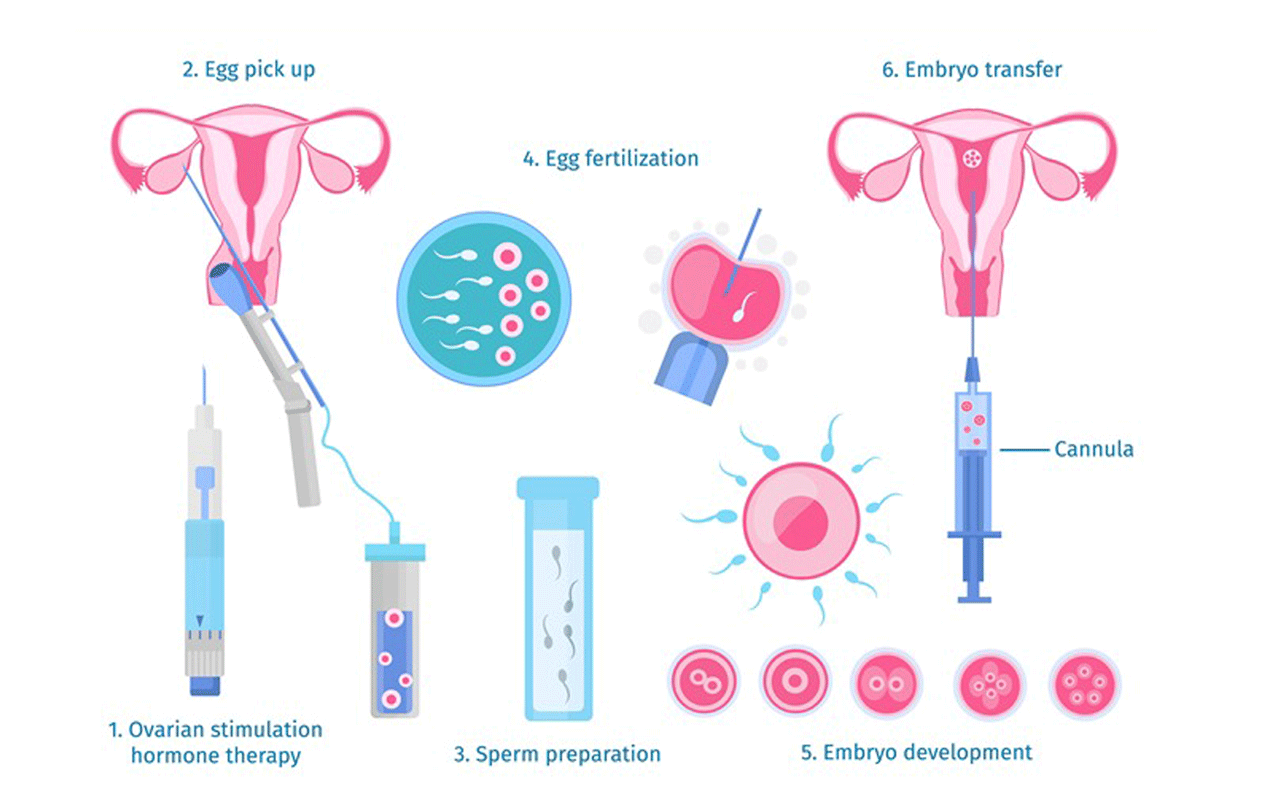The IVF is a five step procedure wherein the first step is putting the expecting mother on adequate medications and injections to stimulate healthy egg development. Second step is harvesting the eggs collected from the ovaries and collecting sperm sample, combining the egg and the sperm in a laboratory through various methods of fertilization, mostly intracytoplasmic sperm injection, culturing the embryo and tracking the progress, transferring the grown embryo into the uterus, monitoring the progress and delivering the good news to the soon-to-be parents.
From the first born IVF baby, Louise Brown until today, success rate for the procedure are pretty high but depend on variable factors such as maternal age, cause of infertility, embryo status, reproductive history and lifestyle factors. Younger women are more likely to respond to IVF better than older women above the age of 41. Women who have been pregnant previously have higher chances of IVF conception that those who have never conceived before.

